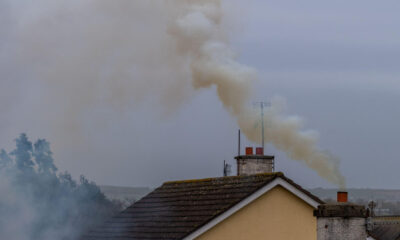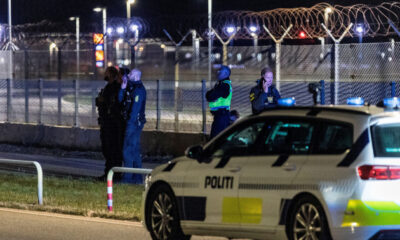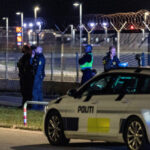Breaking News
Call for boycott of Obama Freedom of Dublin award

Read more on post.
A number of Independent Dublin councillors have called for a boycott of the Freedom of the City award to former US President Barack Obama.
Dublin City Council voted in 2017 to grant him the honour and he has decided to accept it while in Ireland for an event tomorrow.
Mr Obama will take part in what is being described as a small intimate ceremony in Dublin with Lord Mayor Ray McAdam and a number of councillors in attendance.
He will receive the award before being invited to sign the roll of honour.
The Independent Group on Dublin City Council has said it will boycott the event due to Mr Obama’s “support for the terrorist regime in Israel” and his “murderous foreign policy in Libya, Yemen, Somalia and elsewhere”.
“The Obama administration granted Israel an unprecedented military aid package of $38 billion in 2015 despite its war crimes in Gaza and relentless settlement expansion,” the statement read.
“His administration objected to Palestine joining the International Criminal Court and opposed any ICC investigation of grave crimes by Israeli officials.”
The group also said the Obama administration carried out more drone strikes in Pakistan, Somalia and Yemen compared to the Bush administration.
It also accused the former US president of invading Libya without congressional authorisation.
“Obama’s administration greatly expanded deportation from the US, deporting over twice as many people than Bush. Although he claimed to prioritise deporting migrants who were dangerous criminals, he ended up targeting hundreds of thousands of people with old or minor convictions,” the group said.
The Independent group called on the Lord Mayor to rescind his offer and asked all invitees to boycott the event.
When he invited Mr Obama last July, Mr McAdam said the Freedom of Dublin is “a rare distinction reserved for individuals whose leadership, service and values have made a profound and lasting contribution to the world”.
In recent days, he said Mr Obama’s presidency came at a transformative time and that his tone of political discourse and the reforms he introduced made him a fitting recipient for the Freedom of Dublin.
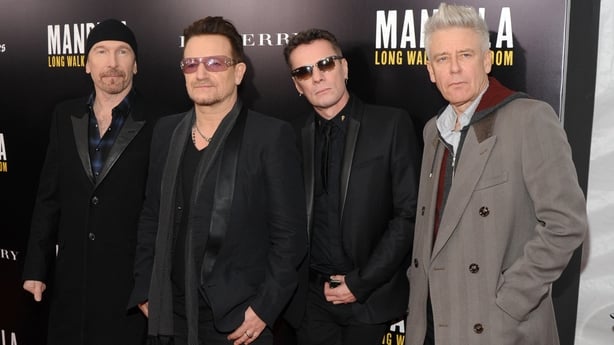
People Before Profit-Solidarity’s Group Leader on Dublin City Council Conor Reddy has refused his invitation to attend the event and encouraged Dubliners to take part in any protests that make take place around the ceremony.
Cllr Reddy said he believes Mr Obama is “not a symbol of peace or freedom but of US imperialism and war” and he said that “it is disgrace that Dublin’s Mansion House is being used to whitewash the legacy of a war criminal”.
He added: “To roll out the red carpet for him in Dublin, at a time when Palestinians are being slaughtered with US weapons, is shameful.”
Mr Obama is on Dublin ahead of an event in the 3Arena tomorrow where he will be in conversation with the Irish Times columnist Fintan O’Toole.
The sold-out event, with an audience of 7,500, follows a similar event in London last night.
A total of 88 people have previously been conferred with the Freedom of Dublin, the most recent being environmentalists Duncan Stewart and Greta Thunberg in June 2023.
Others include Nelson Mandela, John F Kennedy, Mikhail Gorbachev, George Bernard Shaw, U2, Brian O’Driscoll and Dr Tony Holohan.
In 2017, Bob Geldof returned his award in protest at the inclusion of Myanmar leader Aung San Suu Kyi on the roll of honour. Her name was also removed in 2017.
Privileges that come with the Freedom of Dublin
While no financial benefits are attached to the award, holders of the Honourary Freedom of Dublin have some ancient privileges and duties not applicable to ordinary citizens.
Ancient Privileges include:
The right to bring goods into Dublin through the city gates, without paying customs duties.
The right to pasture sheep on common ground within the city boundaries, including modern-day College Green (formerly Hoggen Green) and St Stephen’s Green.
The right to vote in municipal and parliamentary elections.
Ancient Duties include:
Each Freeman or Freewoman must be ready to defend the city from attack.
A Freeman or Freewoman can be called on to join a city militia at short notice.
According to a law passed in 1454, any merchant who becomes a Freeman or Freewoman must possess the following items:
A coat of mail
A bow
A light helmet
A sword of their own.
Freemen from the other trade guilds must have a bow, arrows and a sword.
A law passed in 1465 states that each Freeman or Freewoman has to provide themselves with a longbow (of their length) made of yew, witch-hazel or ash.
They must also have 12 arrows made of the same wood.
Breaking News
Chickenpox vaccine to be made free for children aged one
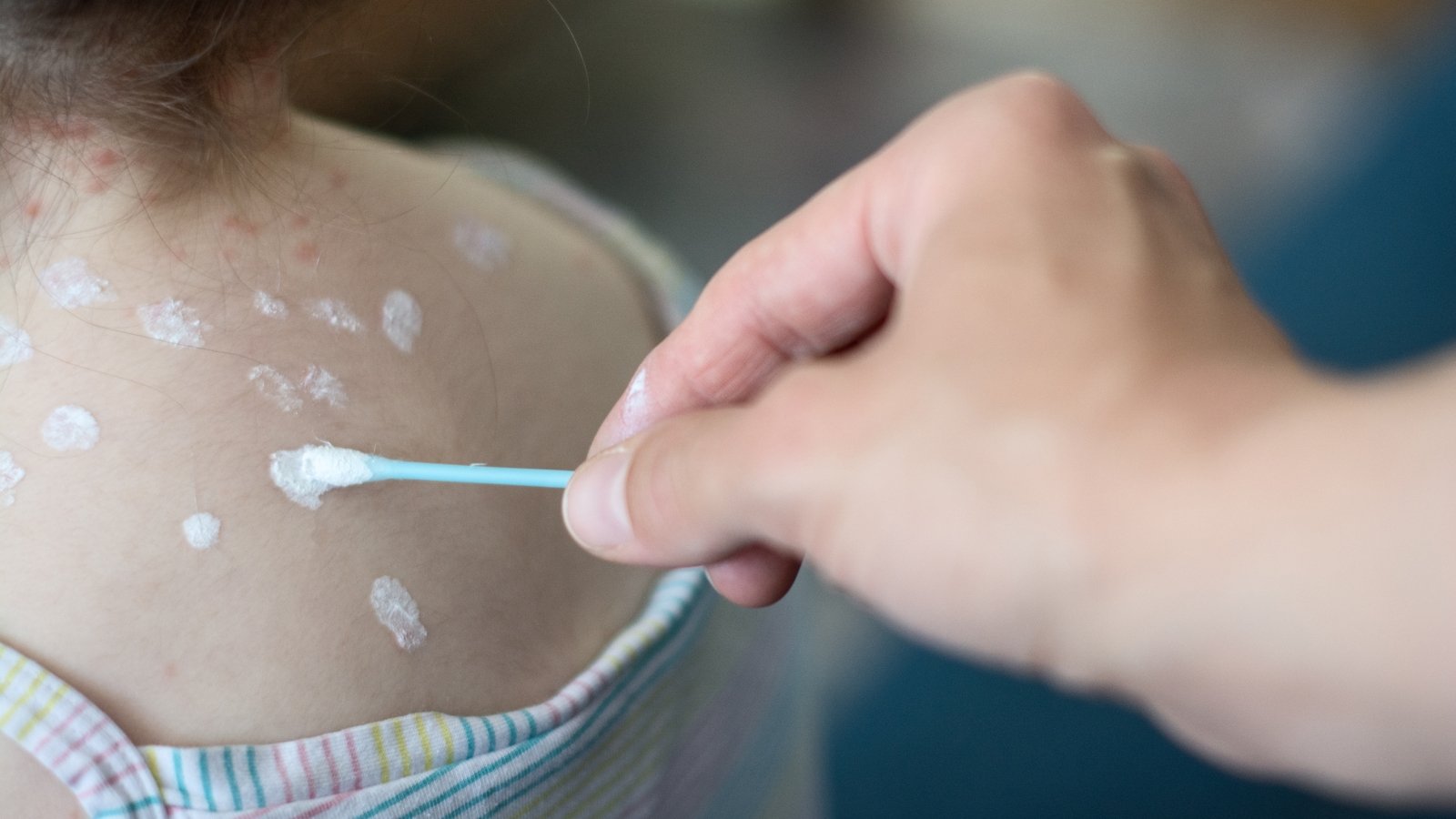
Read more on post.
The Health Service Executive has announced that the chickenpox vaccine will be made available free of charge for all babies born on or after 1 October last year.
The vaccine will be available once a child turns 12 months of age as part of the routine childhood immunisation schedule offered by GPs.
Previously, parents or guardians had to pay for the vaccine.
Dr Ciara Martin, a consultant in Emergency Medicine, welcomed the announcement as a “great celebration”.
Speaking to RTÉ’s Morning Ireland, she said they had been “waiting a while” for this to come in.
She said that although chickenpox can be a mild disease, there are a number of complications associated with it, including skin infections and viral pneumonia.
She said the vaccine is safe and has been available for a number of years, and has been part of the US vaccination schedule since 1995.
Dr Chantal Migone, a consultant in Public Health Medicine at the HSE National Immunisation Office, said she was “delighted” that the vaccine would now be part of the routine schedule.
“While chickenpox is often seen as a mild illness, it can sometimes cause serious complications needing hospitalisation in children,” she said.
“Vaccination at 12 months gives babies important protection against chickenpox and also helps protect the wider community”.
Dr Patrick Kelly from the Irish College of GPs advised parents to contact their GP as soon as possible if their child is approaching one year old.
“Getting vaccines on time, every time is the best way to protect your child,” he said.
“Your GP and GP practice nurse can answer any questions you have and make sure your baby gets everything they need at the right visit.”
The HSE has reminded parents to keep babies on schedule with all recommended vaccines at two, four, six, 12 and 13 months.
Parents are also reminded to bring their baby’s blue immunisation passport to each appointment.
Breaking News
Election candidates on the stump as campaign begins
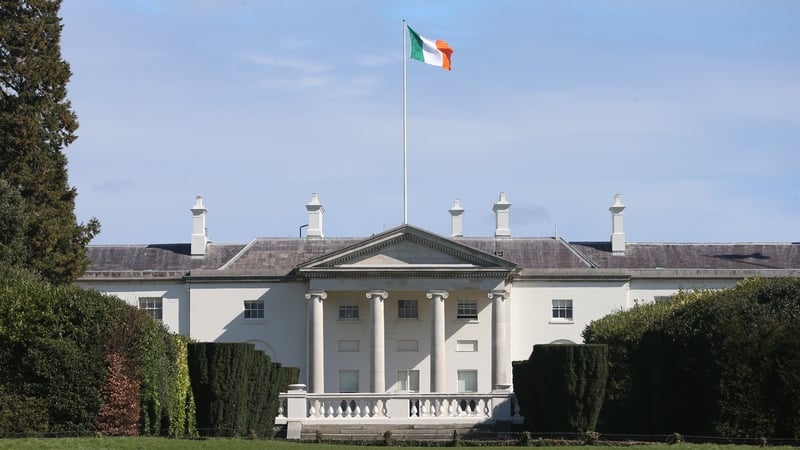
Read more on post.
Breaking News
Retailers and communities on the ‘chaos’ of anti-social behaviour
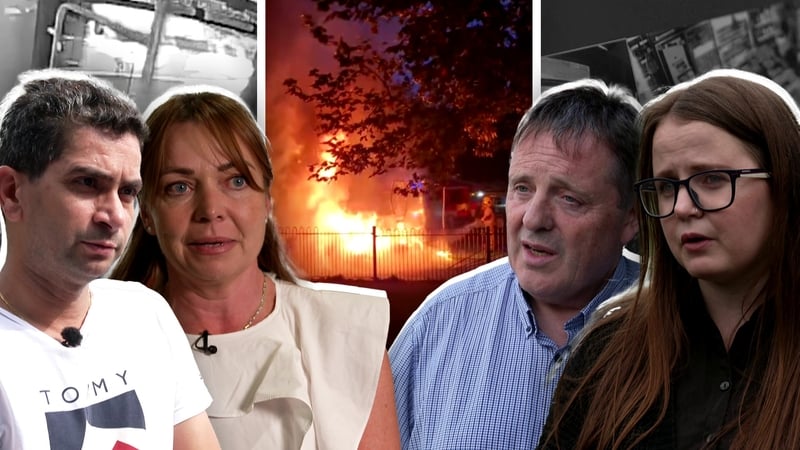
Read more on post.
Anti-social behaviour has become a pressing issue in towns and cities across Ireland, with retailers, commuters and public transport operators all reporting disruptive and sometimes violent incidents.
Incidents on Dublin Bus services, for example, have more than doubled since 2019 — and while no single dataset captures every occurrence, footage and first-hand accounts suggest the problem is being felt across communities.
Prime Time has been speaking to those impacted, and to experts, about the scale of the problem and possible solutions.
Gangs of children – including girls as young as ten-years-old – are causing “absolute chaos” by abusing staff, shoplifting and trashing shops, several retailers told Prime Time.
“We’ve seen an awful lot of 10 to 12-year-olds coming in wreaking havoc. They invade the shop in gangs of five to seven,” said Limerick shop-owner Geraldine Kearney describing a recent incident in her shop.
“They danced on our counters. They trashed the place, turned on ice cream machines [to pour over the floor].”
Ms Kearney says the gangs of children distract her shop staff by causing bedlam before jumping over the counter to rob vapes and other products. She runs a Londis and Circle K in Castletroy on the outskirts of Limerick city.
“It’s the fifth time that they have hit my shop. They know exactly what to do. They cause absolute chaos. They have taken €150 to €200 worth of products,” Ms Kearney said.
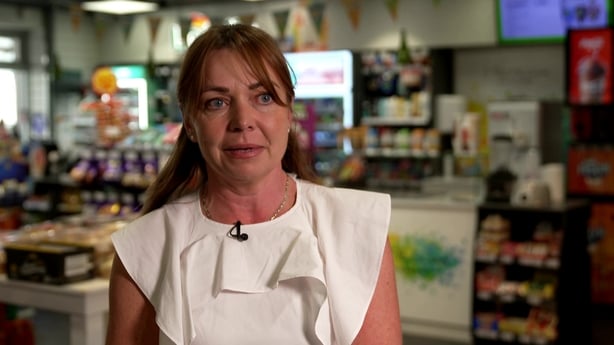
Caught on camera, they are just some of a wave of incidents which will be shown on a Prime Time report broadcast at 9.35pm tonight on RTÉ One television.
She added that the children have shouted at the staff, “You’re not allowed to put a finger on me, you’re not allowed to touch me”.
The CCTV and phone footage gathered during Prime Time’s research offers a snapshot of anti-social behaviour in homes, shops, and on public transport. The activity, several organisations and companies said, has increased in recent years, and is causing disruption across the country.
“Many people say they feel less safe,” criminologist and community activist Trina O’Connor said.
“They feel there’s almost like this menace in the air. And that’s been reported in study after study since the pandemic, that people feel a lot less safe within their communities.”
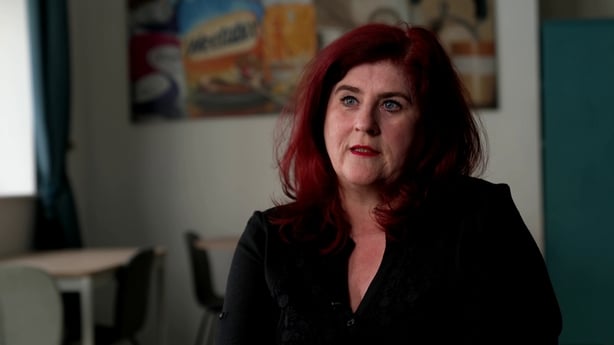
Dublin Bus has recorded a two-fold increase in anti-social behaviour on their buses.
Gwen Morgan, Director of Service Operations at Dublin Bus, told Prime Time that “in 2019 there were 494 incidents of anti-social behaviour reported on Dublin Bus services. You move forward into 2024 and that figure almost doubled to 1,053 incidents”.
CCTV footage from Dublin Bus services shows a variety of incidents ranging from a milkshake being thrown at a bus driver to violent clashes between passengers.
In one distressing incident a man and woman have a physically aggressive altercation. The woman is left lying on the floor of the bus after she appears to bang her head.
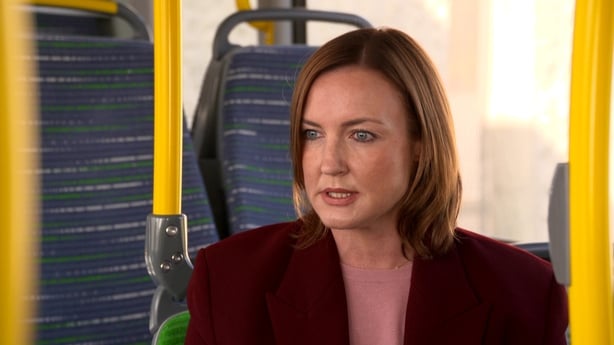
Footage from Luas operator Transdev shows a teenager indiscriminately kicking a ticket machine, while other footage shows a man subjecting a staff member to vile racist abuse outside Dublin’s Heuston Station.
Incidents of anti-social behaviour are not limited to public transport, as other workers have been victims of random attacks as they commute to and from work. While even incidents that don’t turn physical can leave an effect.
Originally from South Africa, Christie Pennicott has been living in Ireland for over a decade. She commutes to work in the city by scooter along the Grand Canal from her home in Lucan, west Dublin.
On the way home from work a few months ago, a group of teenagers threw rocks at her as she passed Clondalkin village on the canal. She managed to get away from the group on her scooter, but she has been left shaken by the attack.
As the dark winter evenings approach, she said, “I would be scared that some of them might be hiding. They might throw bottles. It might escalate”.
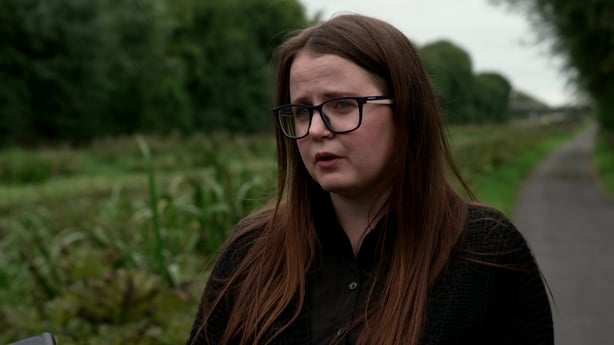
As recently as last week, Paul Gogarty, Independent TD for Dublin Mid-West, brought the apparent rise in incidents of anti-social behaviour up in the Dáil.
“Over the last six months, we’ve had so many incidents. We’ve had scooters going through playgrounds. We’ve had knives, fires lit, people being intimidated and threatened.
“They had a pregnant woman walking with a buggy, circled by a group of scooters, shouted at, and threatened.”
He told Prime Time: “it’s happening everywhere, and that’s the problem. It’s not specific to anywhere.”
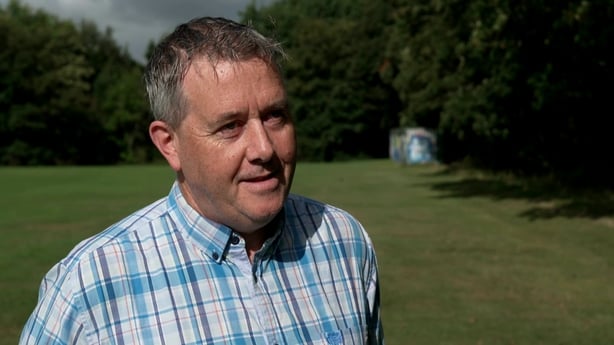
Videos of anti-social behaviour are constantly shared on social media platforms.
So, are they amplifying an already existing problem? And is it possible to accurately measure if there has been an increase in anti-social behaviour?
Criminologist Trina O’Connor makes the point that “anti-social behaviour is not recorded in the crime statistics [by An Garda Síochána]. So, it’s very difficult to know statistically whether there has been an uptick. But certainly, when you speak to people, they do feel less safe”.
Dr Johnny Connolly, from the Centre for Crime, Justice and Victims Studies at the University of Limerick, says anti-social behaviour can be seen as low level crime, behaviour that disrupts, upsets or intimidates other people.
“While you might hear concerns about an increase in anti-social behaviour, it’s very difficult to determine that.”
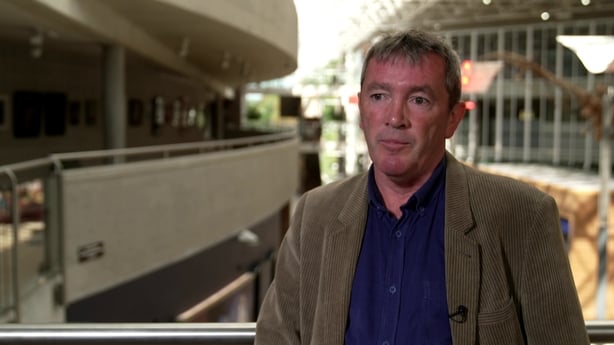
Routine supermarket visit turns traumatic
Originally from India, Rajesh Malik, has been living in Ireland for 24 years. He has been running his own phone shop in Lucan for 15 years.
In January, he was the victim of a serious assault outside a supermarket in Adamstown, west Dublin.
As he tried to lift a product from a shelf in the back of the shop, some teenagers stood in his way. When he politely asked them to move, the teenagers stood in front of him and refused to give way.
A security guard came along and asked the teenagers to leave the shop but soon a routine trip to a supermarket turned into a traumatic experience.
After the verbal confrontation with the teens inside the shop, Rajesh was attacked by a group of four outside.
Mr Malik told Prime Time: “I was going towards my car. One of the guys, he was 16 or 17, came in from behind, and hit me. And then all four of them [joined in].
“I was on the ground, all four of them, they start hitting me.”
He was left badly injured and needed three operations in hospital to treat his injuries – both of his hands were broken, and he had to have a plate inserted in one of them. He also needed stitches to treat cuts above his eyes.
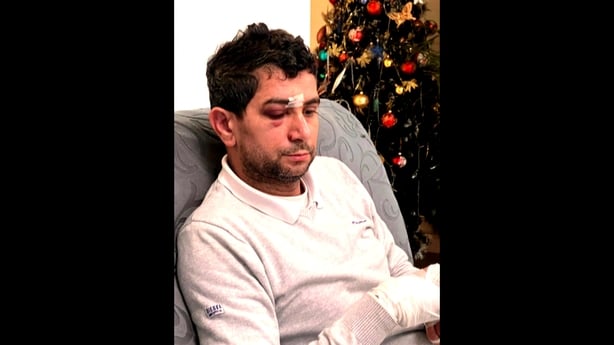
As disturbing as the attack was, what shocked Mr Malik most was that it was recorded as it happened.
So why do perpetrators film attacks? Criminologist Trina O’Connor says it comes down to several psychological motives for recording and sharing them online.
“One of the things is about they want to get a reputation for themselves, and they wear it as a badge of honour that they can intimidate other people,” she said.
“They will enjoy seeing that person being humiliated again and again.”
“The problem, I suppose, is for the victims, the innocent victims. That’s out there forever for that person to be humiliated,” she added.
Mr Malik says the random attack was not racially motivated. He reported the attack to the Gardaí but he says the perpetrators have not yet been identified.
The need to tackle causes not symptoms
Philly McMahon, an eight-time All-Ireland winning footballer with Dublin, is deeply involved in his home community in Ballymun on Dublin’s northside.
His older brother John died of a drug overdose in 2012, and he has since set up a charity ‘Half Time Talk’ to help at risk young people.
The Dublin GAA legend says his deceased brother acted as a role model, as his troubles caused by drug addiction acted as a deterrent. Instead of following John’s footsteps, Philly turned to sport and was hugely successful.
Asked about anti-social behaviour, he stresses the need to look at the causes and not the symptoms that follow afterwards.
“If you don’t look at it from that point of view, if you don’t look at it historically, then you’re probably just constantly putting out fires from the symptoms,” Mr McMahon said.
He says we can learn a lot from looking at the profile of Ireland’s prison population.
“Looking at the working-class communities that are heavily represented in prisons and then link that back, you could imagine that those people started their journey probably with anti-social behaviour.
He added when he grew up in the Ballymun flats, there was a “feeling that the Gardaí are your enemy and feeling that your opportunity in life was to bring something across the road and get a few bob for it, or it might be to rob cars or bikes”.
“When you look at young people and you look at the journey they’re on, there’s points of contact there that can make a massive impact on that individual. And it can be through sport, it can be through education. But generally, it can come from that one good adult that can believe in you,” Mr McMahon said.
“And that’s what Half Time Talk is trying to do. It’s trying to instil self-belief in young people, and it’s trying to pull youth organisations and local champions together to help the next generation of people, because those next generation of people can help the next generation, and it’s a snowball effect.”
He said that we should consider a similar strategy to one employed in the UK to tackle anti-social behaviour.
“They have Community Social Officers, and that’s actually very similar to what we do in the GAA world because we have GPOs – Gaelic Player Officers – that go into the GAA clubs, particularly here in Dublin, and they develop the coaching side of things.
“I think that could be used. We could use that element to impact the anti-social behaviour because that brings all the stakeholders together.”
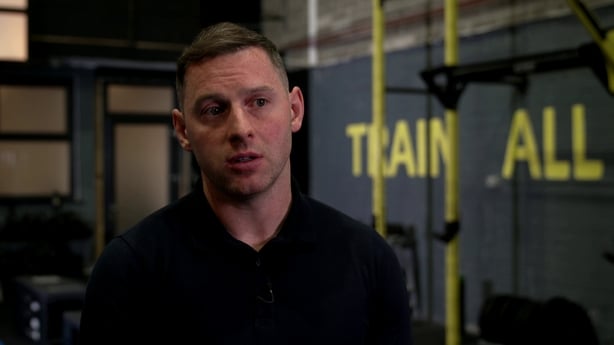
That idea echoes an initiative that is currently being rolled out across all local authorities.
Local Community Safety Partnerships – which bring together the Gardaí, local authorities, residents as well as the community and voluntary organisations – are currently being put in place.
Dr Johnny Connolly sat on the Commission on the Future of Policing which advocated for a significant overhaul of how communities will be policed through the Local Community Safety Partnerships.
“We now for the first time in this country have an infrastructure of community safety, again, following on from the recommendations on the Commission on the Future of Policing, where we have Community Safety Partnerships being established in every county in the state.”
The Department of Justice has confirmed to Prime Time that the first meeting of a Local Community Safety Partnership will be in Wexford next week, with a view to establishing partnerships in every county by the end of the year.
Some people have an alternative view on our criminal justice system and believe tougher punishments should be considered.
Retailer Shane Gleeson said is among those who argues that prison sentences should not be a last resort.
“The biggest issue I perceive is there isn’t enough jail space. I know some people say jail isn’t a solution, and I would say that’s ridiculous,” Mr Gleeson said.
“When there was more jail space available and people were afraid of going to jail, it did work. The problem now is there isn’t any,” he said, before adding “try working behind a shop counter and being assaulted or attacked every day of the week.”
Trina O’Connor says Garda Juvenile Liaison Officers (JLOs) can be instrumental in diverting young people away from anti-social behaviour.
“When you get a good JLO, the difference that makes for a young person is phenomenal,” Ms O’Connor said.
“People would say, just lock them up and throw away the key. But with that one good adult working with them and committing to them, that has helped them move their way through adolescence,” she added.
Dr Johnny Connolly believe that most young offenders naturally grow out of such behaviour, with the vast majority ‘aging out’ by their late teens.
“The vast majority of the young people who get involved in crime, which is a tiny minority, they generally age out of it around the age of 18 and 19,” Dr Connolly said.
“I would say Ireland is a very safe place to live. Again, it’s very difficult to say that definitively because of the absence of proper data sources and data systems,” he added.
While the statistics are not categorical, there are victims living in fear of anti-social behaviour.
Following repeated incidents in her shop, Geraldine Kearney in Limerick says her staff “are afraid. They will not take it anymore. It’s not fair.”
Rajes Malik says the perpetrators are not afraid of anybody and they think nobody can touch them.”
Christie Pennicott, who had rocks thrown at her by teens as she passed by on her scooter, is afraid of meeting her attackers again.
“For winter, there’s no way I can travel in the dark. It’s not safe.”
Reporter Conor McMorrow and producer Genevieve Brennan’s report ‘Law and Disorder’ is broadcast on the 25 September edition of Prime Time at 9.35pm on RTÉ One and the RTÉ Player.
-
Culture2 days ago
Taylor Swift’s new cinema outing generates more than €12million in just 24 hours
-
Politics2 days ago
European Parliament snubs Orbán with vote to shield Italian MEP from Hungarian arrest
-
Business21 hours ago
Households to be offered energy bill changes, but unlikely to lead to savings
-
Culture2 days ago
Milan Fashion Week 2025: Unmissable shows and Giorgio Armani in mind
-
Opinion2 days ago
Fintan O’Toole: How can you live with the knowledge that you have facilitated mass murder?
-
Culture3 days ago
Marvel stars Mark Ruffalo and Pedro Pascal stand up for Jimmy Kimmel as Disney boycott intensifies
-
Health3 days ago
EU renews support for WHO’s Universal Health Coverage Partnership
-
Opinion2 days ago
AI Is Pointless If It Doesn’t Boost Productivity


